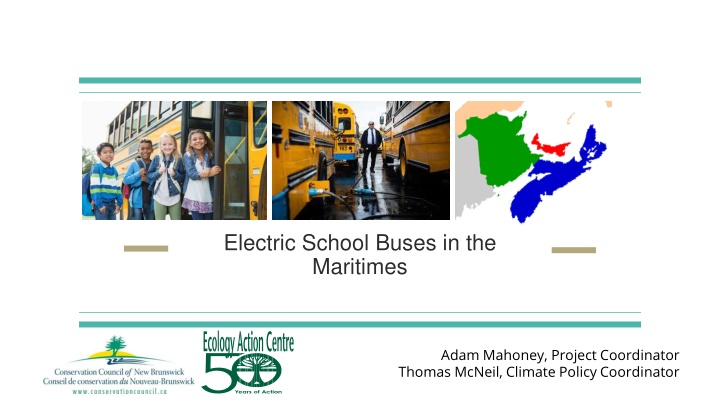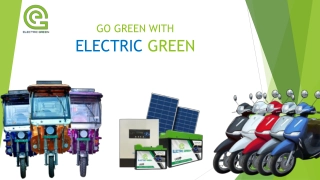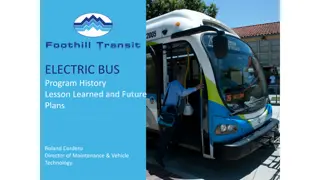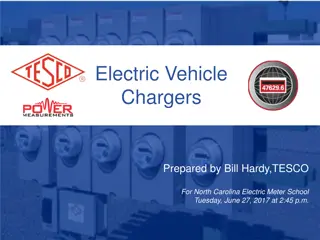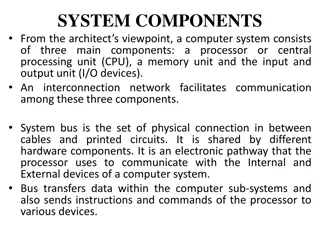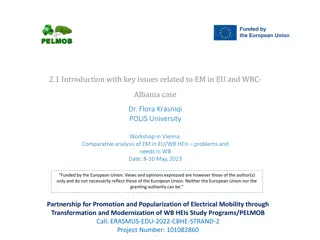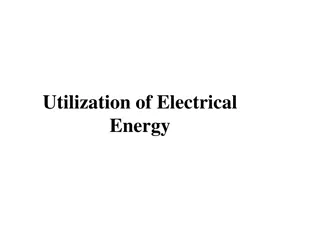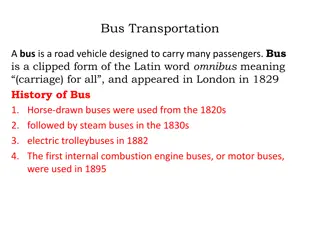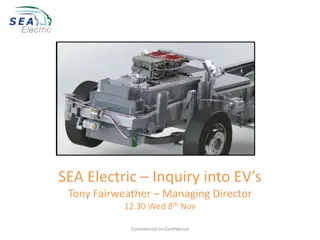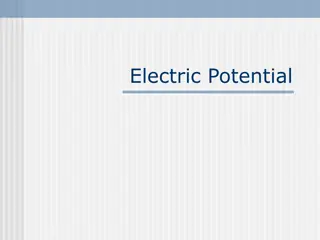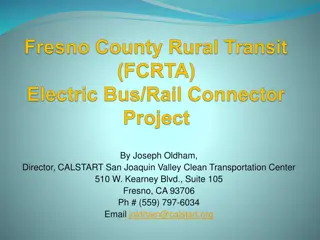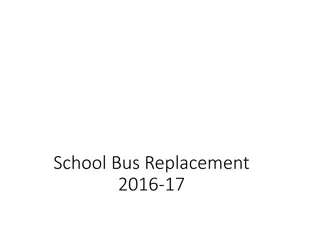Electric School Buses in the Maritimes
Electric school buses are highlighted as a solution to reduce diesel emissions, which are harmful to children's health and contribute to climate change. The initiative in the Maritimes focuses on transitioning to electric buses for a cleaner, safer, and more sustainable future.
Download Presentation

Please find below an Image/Link to download the presentation.
The content on the website is provided AS IS for your information and personal use only. It may not be sold, licensed, or shared on other websites without obtaining consent from the author.If you encounter any issues during the download, it is possible that the publisher has removed the file from their server.
You are allowed to download the files provided on this website for personal or commercial use, subject to the condition that they are used lawfully. All files are the property of their respective owners.
The content on the website is provided AS IS for your information and personal use only. It may not be sold, licensed, or shared on other websites without obtaining consent from the author.
E N D
Presentation Transcript
Electric School Buses in the Maritimes Adam Mahoney, Project Coordinator Thomas McNeil, Climate Policy Coordinator
Trottier and Echo Foundations CCNB and EAC are working to mobilize grassroots support and government relations strategies for successful electric bus adoption. Canada Electric School Bus Alliance (CESBA) Equitterre, Green Communities Canada, Conservation Council of New Brunswick, Ecology Action Centre, For Our Kids, Pembina, and Pollution Probe. 2
Panelists Tomas Murphy, Pupil Transportation Coordinator, Department of Education and Early Childhood Development, New Brunswick. Tomas oversees the management of over 1200 school buses and the safety of over 75,000 students who are transported daily by our school buses. Tomas looks after the procurement of new school buses, the training program for new drivers, as well as policy and budgetary responsibilities on behalf of the department. Mike Franklin, Logistics Specialists, PEI Public Schools Branch Mike oversees the training program for electric school buses. He has 22 years of experience in teaching both urban transit operators and school bus operators, as well as 20 years of experience serving in the Canadian Armed Forces as a tank commander. 3
Why electric school buses? Diesel exhaust is a human carcinogen. It causes respiratory inflammation and reduces lung capacity, and it is linked to many other adverse health effects including respiratory effects, cardiovascular effects, central nervous system effects, immunological effects and reproductive and developmental effects 4
Children feeling sick Diesel emissions have been estimated to cause 2,200,000 acute respiratory symptom days, 170,000 asthma symptom days and 3,000 child acute bronchitis episodes every year in Canada 5
Childrens health Transportation-related air pollutants such as nitrogen dioxide (NO2) and fine particulate matter (PM2.5) are associated with cognitive development disorders in school-aged children (including slower response time, ADHD, anxiety and depression) 6
Contributor to climate change In terms of climate impact, NB s school bus fleet (around 1,250 buses) emits close to 22,500 tonnes of carbon dioxide (CO2) per year. Nova Scotia has more buses (1,298 buses) making their emissions total slightly higher. 7
Making smart choices for our environment By shifting to electric, we can help our provinces meet the challenges of climate change. Approximately 18 tonnes of carbon removed per year for each diesel school bus replaced with electric. Electric school buses align with NB and NS climate goals in their respective climate action plans. 8
Making smart choices for our children Substantial reductions in school bus diesel emissions resulted in more than a 30% decrease in childhood bronchitis, asthma case. (Study published in 2019) 9
Making smarter choices for our drivers School bus driver reported how much safer they felt driving an electric school bus given how quiet it was. Electric buses will also reduce long-term hearing loss experienced by drivers and other diesel related health complications. 10
Making smart choices to inspire the next generation The big yellow school buses moving around urban and rural areas are an important symbol of the Maritimes commitment to future generations. 11
Stakeholder Outreach CCNB and EAC have been conducting stakeholder outreach to understand the perspective of bus drivers, students, parents, teachers, health experts, and Labour. We have also been meeting with government departments such as Education and Early Childhood Development, Environment and Local Government, and we are reaching out to Transportation and Infrastructure. In each instance, stakeholders are enthusiastic about switching to electric school buses. Participants of a recent roundtable on school bus electrification proposed several benefits to adoption. 12
Stakeholder Feedback Diesel buses create noise pollution that affect the driver s ability to pay attention to the road. Bus Driver 13
Stakeholder Feedback Children s lungs are less developed and that it is a really critical time to take the opportunity to give them cleaner air, especially on their way to school you set them up for success. Health Expert 14
Stakeholder Feedback [School buses] are a very public symbol of government. Switching to electric shows a clear commitment to a sustainable future and will socialize the next generation of climate conscious residents. Parent Stakeholder 15
Stakeholder Feedback In general, the green solution costs less in the end add on the environmental and health benefits afterwards. Teacher Stakeholder 16
Stakeholder Feedback This is a big issue. In the long run it will be cheaper, these buses are an investment in our finances and health. The environment is a priority, and the government has to see that. Electric buses will be reducing CO2 emissions by an amazing amount. We are not investing in electric buses we are investing in a better and brighter future. Student Stakeholder 17
Where to buy E-Buses? The main manufacturers of E-Buses: Lion Electric Blue Bird Greenpower Navistar Thomas Built Buses Lion Electric is currently hiring for a new facility in Moncton, New Brunswick 18
Costs of Electric School Buses Diesel Buses: Electric School Bus: Capital Costs: $110,000 Capital Cost: $360,000 (150 km range) Current Fuel Costs: $2.39 Charging Infrastructure: $10,000 Fuel cost after 1 year (20,000km): $17,303 Fuel Cost: 11c/kwh Maintenance cost ($0.19/km): $3,800 Fuel cost after 1 year (20,000 km): $4,256 Maintenance cost ($0.11/km): $2,200 TOTAL COST AFTER 1 YEAR: $131,104 After 5 years: $215,518 TOTAL COST AFTER 1 YEAR: $376,456 After 5 years: $402,280 19
Zero Emissions Transit Fund In 2021, Government of Canada launched the Zero Emission Transit Fund, investing $2.75 billion to support public transit and school bus operators to transition to zero emission vehicles, from planning to purchasing vehicles and building infrastructure. - - - - 50% for capital projects 80% for planning projects Max of $350 million per project Fund is running until 2026 20
Investing in Canada Green Infrastructure Stream Electric school bus purchases is eligible under the Green Infrastructure Stream for Climate Change Mitigation Improved Access to Clean Energy Transportation. For provincial projects, the stream will fund up to 50% of the costs. PEI has received 50% ($6.3 million) for 2 consecutive purchases of 35 electric school buses. 21
Payback period with 50% subsidy Capital Cost: $360,000 (150 km range) + $10,000 charging infrastructure) WITH FEDERAL GRANT (50% at $185,000): Fuel Cost: 11c/kwh Maintenance cost ($0.11/km): $2,200 $60,000 per bus to be at cost parity after year 1 ELECTRIC: After 1 year: $191,460 After 5 years:$217,280 DIESEL: After 1 year:$131,100 After 5 years: $215,520 22
How can CCNB/EAC help make this happen? - - - - - Improved children s health Improved environmental health Help NB/NS reach its climate action goals Take advantage of money available from federal sources Help the Maritimes make a commitment to transitioning it s fleet Joint procurement through CAMET PEI is already poised to have 25% of their fleet be electric - - 23
Thank you For more information, contact: Adam Mahoney, Energy and Climate Change Coordinator, Conservation Council of New Brunswick adam.mahoney@conservationcouncil.ca Thomas McNeil Climate Policy Coordinator, Ecology Action Centre thomas.arnasonmcneil@ecologyaction.ca 24
